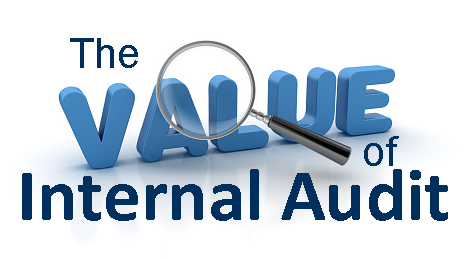Why Internal Audit?
By Nicodemus Tan
September 2021

Many years ago, when I was overseeing an internal audit function in China, one of my internal auditors came to me crying. Her colleagues had accused her of being a traitor to Singaporeans by “writing bad things” about them which caused them to be fired.
My redacted conversation with her went like this:
| Me: | How many staff do we have in our company and our major subsidiaries? |
| Auditor: | About 20,000. |
| Me: | How many people including our suppliers rely on us for a living? |
| Auditor: | Maybe about half of this 300,000-strong town, since its ecosystem is built around us and a pharmaceutical factory. |
| Me: |
What will happen if you didn’t catch that guy inflating our costs unlawfully? We will be losing our competitiveness and our company will collapse over time. How many people will you have failed then? By performing your job properly as an internal auditor - the very act of highlighting improper procedures protects the jobs of those people. You are ensuring that their kids get to go to school, and return for meals under a roof, which has been paid for by their parents. |
It may not be an obvious link to the non-initiated, but a good internal audit team will always make a difference to the long-term survivability of a company. Think about two hypothetical identically profiled multinational corporations. One has a great internal audit function which helped reduce the risk of all processing errors to 0.1%, while the other had a residual error rate of 0.2%. This seemingly insignificant difference will become a ginormous mammoth one year down the road as error rates are multiplied and magnified by the millions of purchases, production, sales, HR transactions, etc.
An effective internal audit function makes the difference between a management spending time constantly fire-fighting and a management spending time making strategic decisions. It is the difference between having disgruntled customers from poor sales order fulfilment and cross-selling or up-selling based on customer goodwill. It is also the difference between having a lack or oversupply of raw materials and an optimal stock level that minimises production downtime and inventory holding costs.
When I returned to Singapore from that China stint, I had the opportunity to audit several major healthcare entities. My team was starting to do simple data analytics and was able to identify certain uncompleted diagnostic tests that should have been done months ago. This case clearly exemplifies that internal audit can make a major difference to the health and well-being of the human race in general!
The internal audit profession has since furthered our cause. Instead of being a third line of defence, we have removed this mental restraint and have advocated a more active role in helping organisations achieve their objectives. By equipping ourselves with digital skills for the future and knowledge of emerging risks, we add value to management and the board by nipping the risks in the bud - asking the difficult questions and calling out any issues that we uncover.
So, while internal audit isn’t a direct cure for cancer, nor does it command social respect with the likes of doctors or police officers, internal audit has helped put food on the table, and unsurprisingly fulfils many self-actualisation needs as described by Maslow.
Overall, the value of internal audit has evolved and increased over the past 20 years. It may not be obvious to the common man in the street, and our internal audit utopia may still be some time away but we are definitely moving closer and closer!
Nicodemus Tan is a Partner at Baker Tilly LLP, a Governor of The Institute of Internal Auditors Singapore, and a fervent believer that internal audit when done right will provide an immense competitive advantage to the organisation.
The Institute of Internal Auditors Singapore blogs reflect the personal views and opinions of the authors. These views may differ from policies and official statements of The Institute of Internal Auditors Singapore and its committees and from opinions endorsed by the bloggers’ employers.



